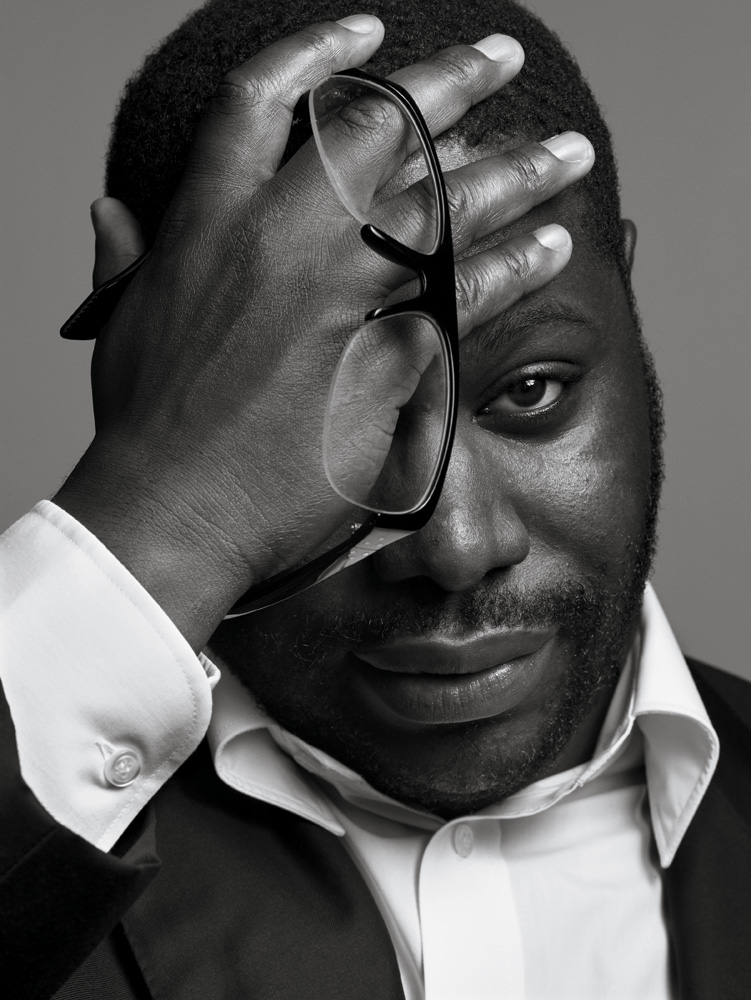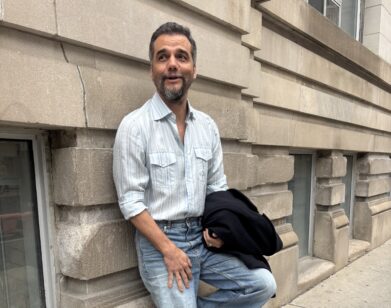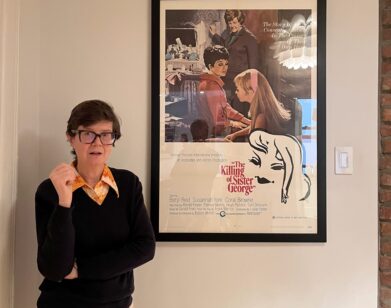Steve McQueen’s Sense of Release

In a perfect world, Shame would be the most-talked-about movie of the year—a pinch in the dark, a jolting shake, a reminder that cinema can still be powerful in a world where the most-talked-about film is The Muppets. Michael Fassbender, the best actor around, a man who seems to always be working, plays Brandon, on the surface a familiar Manhattanite—clean-cut, well-groomed, great job, and a Midtown apartment to boot. But underneath the polished veneer buzzes a severe sex addict, a man who ritualizes his frequent trips to the office bathroom to pleasure himself. When his broken-down sister, Sissy, played by Carey Mulligan, invades his sealed off world of self-gratification, the whole structure begins crumbling all around him.
Interview spoke to director/artist Steve McQueen, who previously directed Fassbender in McQueen’s debut feature, Hunger, about speaking to sex addicts, the NC-17 rating slapped on the movie, and the painful period after he finishes a film.
CRAIG HUBERT: On the surface, Shame is very different in subject matter from your previous film, Hunger. What interested you in sex addiction?
STEVE McQUEEN: It was myself and Abi Morgan. We had a conversation, for an hour, and three and a half hours later, we were still talking. It was one of those things where—we started talking about the internet, pornography, and then sex addiction. We started to do research—well, tried to do research, in London, but no one wanted to speak to us. It was one of those things where, I think at the time, a lot of people were talking about sex addiction. It was very much in the news. I think people just shut down, they didn’t want to speak to us. And then we went to New York and talked to experts in the field and in turn they introduced us to people who are sex addicts, or recovering sex addicts, and I thought, “Why don’t we just make this film in New York?” That was it.
HUBERT: Do you think it’s a cultural thing that nobody wanted to speak to you in London?
McQUEEN: No, no. I think there were, maybe, people who maybe thought we were involved in the media.
HUBERT: I see. How important is that level of research for you?
McQUEEN: It’s imperative. We were here, we spoke to several sorts of people who have sex addiction, and got to really understand it, in a way, through the people who were helping them. We were like Columbo and Miss Marple, following the trail, not knowing what we would find. I didn’t want to put my stencil on the subject matter. I wanted to find our way through it.
HUBERT: Do you do any other types of research?
McQUEEN: Visual research, yes, of course. Sound research—sound is my thing, I love sound. A lot of the research had to do with Brandon, where he would live, how he would travel to work, where he would go for his take-out food, where he would drop off his laundry, stuff like that. That was very important for me.
HUBERT: Did you look at films, or even paintings or photographs, before shooting?
McQUEEN: No, no. [Points toward the window.] New York City is interesting enough.
HUBERT: Right, of course. The spaces in the film, Brandon’s apartment for example, are really confining and claustrophobic.
McQUEEN: That’s what apartments in New York are like, for that money. We could have put him in a loft, but that wouldn’t be true. We researched – how much Brandon would have got paid, and what kind of apartment could he afford. This is the apartment he could afford. Yes, it has a sense of constraint.
HUBERT: Some of the other spaces are much more open, though, such as Brandon’s office, which is all glass. There is nowhere to hide when he is there.
McQUEEN: Yes. The thing is, also, that a lot of Americans live and work in the sky. That’s kind of strange to me, of course. What’s interesting about that is that you always have a perspective on the city, as a person, you’re always in location of the city. You always position yourself within the location of the city. I think that does something—what is your significance within that, within that view.
HUBERT: The Standard Hotel is the location of a major scene in the film. Was there something that interested you specifically about that hotel and its location? Were you aware of its reputation?
McQUEEN: At the time, I didn’t know that. It was one of those things, again, the view—I love this broken jetty, outside the window, which is almost like people are submerged or on the verge of being submerged.
HUBERT: So this is your second film with Michael Fassbender. How has the working relationship changed?
McQUEEN: I think we know each other better. I’m very fortunate to have a working relationship with Michael. It happened by accident, but he’s amazing.
HUBERT: When you approach him with an idea for the film, do you collaborate on aspects of the character, or do you both go off separately?
McQUEEN: It’s all about the script. I don’t write with Michael in mind, I write with the character in mind. It’s the script—and of course, a little bit of rehearsal. That’s it, then we go for it.
HUBERT: I wanted to ask a little about the music in the film. There’s a sharp contrast between the Glenn Gould pieces that Brandon listens to, and the dance music featured in other parts of the film, bands like Tom Tom Club and Chic.
McQUEEN: The thing about Glenn Gould and Brandon, The Goldberg Variations, in particular, is that it’s like a mathematical equation within music. It was something I liked that Brandon held onto in all the chaos happening around him. And the fact that he basically likes vinyl—I wanted him to have tangibility to music, because of course now that tangibility is evaporating. I wanted this fetish.
HUBERT: The film is rated NC-17 here. What are your feelings on what this does to a film? Does it matter to you, or are you just happy the film is released?
McQUEEN: I didn’t even know what NC-17 was. I thought it was a rap band. I thought they had given me a free album or something. It doesn’t mean anything to me. I never had that conversation with Fox Searchlight about cutting the movie, or altering it. I never had a conversation with Fox Searchlight about NC-17, really. I’m just glad it will be released in America and people will have the opportunity to see it.
HUBERT: It’s an adult movie, so I don’t think it will stop people from seeking it out.
McQUEEN: This is a responsible movie, and I’m proud of that. This isn’t a slasher movie, or some guy shooting people in the head.
HUBERT: I imagine doing a film like this is an immersive experience for you. What’s it like coming out of it?
McQUEEN: Well, I’m not out of it yet. I remember when we finished Hunger, after all the promotion and whatnot, I had two huge rashes underneath my arm. I’m not looking forward to what’s going to happen finishing Shame. With Hunger, we’re talking to people who have killed people, who have done horrible things to people. So I’m not looking forward to what happens to me after this. [laughs] For me, it’s all or nothing.
SHAME IS OUT IN LIMITED RELEASE TODAY.






